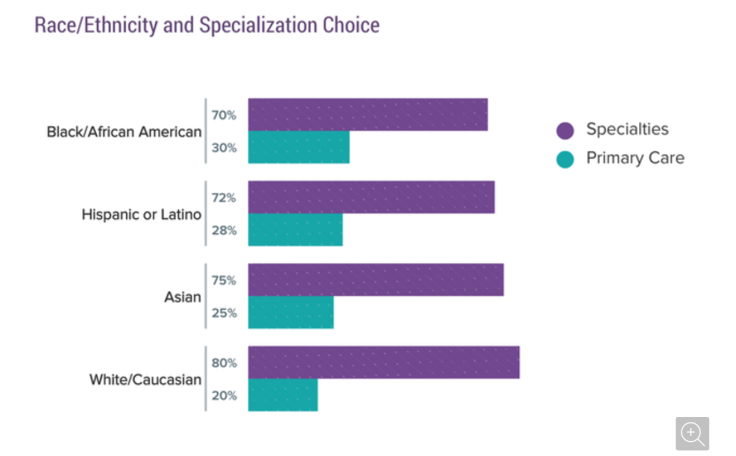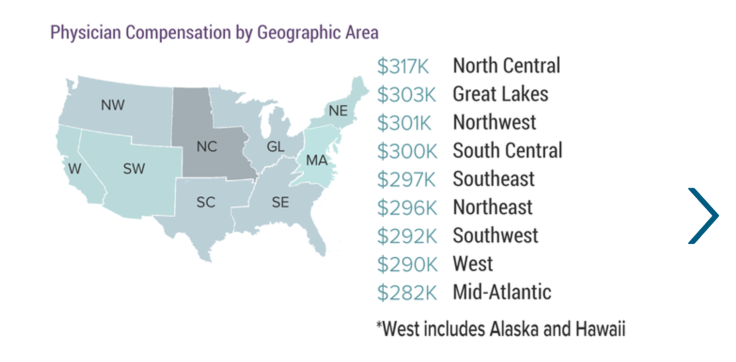Physician Salaries Vary Widely By State And Gender, Reveals Report

Chances are, you’ve dreamed of being a physician at some point, if for nothing more than the high doctor salary. But exactly how much do medical professionals make? Medscape released its report of physician compensation detailing the average income for 27 specialties. More than 19,000 physicians responded to the annual survey.
Read: Can Peroxide Kill You? Yes, Say Doctors About This Alternative Medicine Favorite
The average doctor, regardless of what he or she practices, brings in about $294,000 every year. This figure includes salary, bonuses and profit-sharing. This includes earning after tax (but pre-income tax) and deductible business expenses for those who own a private practice. Specialists tend to earn more than family doctors at $316,000 per year, compared to $217,000.
Between 2011 and 2017, the average salary has climbed from $206,000 to $294,000. According to Travis Singleton, senior vice president of search firm Merritt Hawkins, this is mostly due to the high demand. “There is competition between hospitals and healthcare systems, and also between urgent care centers, federally qualified health centers, direct care, concierge care, and other delivery systems, which all employ doctors,” Singleton says in the report.
It’s worth noting that salaries across all industries have been rising. Consulting firm Korn Ferry Hay’s 2016 salary forecast found that workers saw their biggest pay increase in three years, writes Fast Company. Real wage increases, which are made up of the averages adjusted to account for inflation, were at 2.5 percent.
Doctors are undoubtedly high earners, but orthopedists, plastic surgeons and cardiologists really make bank. Medscape reveals these specialists have the highest salaries at $489,000, $440,000 and $410,000, respectively. Pediatricians, family doctors and endocrinologists report the least, bringing home $202,000, $209,000 and $220,000.
Nearly all physicians experienced some growth in salaries, with one exception: pediatricians. Last year, the baby doctors actually saw a decline of one percent. Medscape doesn’t provide an explanation for the decrease, but one possible factor could be the dip in births. The Los Angeles Times reports the United States saw a one percent decrease in live births last year. However, population increases or decreases could be a factor, the paper explains, so researchers typically look at the fertility rate, too. Last year, the fertility rate hit a record low of 62 births per 1,000 women, compared to 62.5 from the previous year.
New this year, Medscape asked participants their race and determined which ethnic groups made the most. Caucasian respondents made up the majority of those surveyed, and this group also made the most at $303,000 per year. Asians were right under, coming in at $283,000 annually, followed by hispanics at $271,000 per year and African Americans at $262,000. However, the higher salaries of Asian and white doctors can partially be attributed to the fact that more doctors in these racial groups were specialists as opposed to primary care physicians.

Geographic region is one factor for earning potential and those living in the north central region earned the most and doctors in the Mid-Atlantic earned the least.

Read: Oklahoma Doctor Who Prescribed Painkillers Charged With Murder In Connection With 5 Overdose Deaths
Male general practice doctors continue to out earn their female counterparts, making roughly $229,000 compared to $197,000, or 16 percent more. Among specialists the pay gap jumps to 37 percent as males earn $345,000 compared to $251,000 for females.
While your salary may not compare to a doctor’s, there is one thing you probably have in common in terms of income. The majority of those surveyed indicated they were underpaid. About 46 percent of general care doctors believe they should be compensated between 11 and 25 percent more; roughly 30 percent would like to see their earnings bumped to between 26 and 50 percent more.
See Also:
What Do My Blood Test Results Mean? 5 Questions To Ask Your Doctor
Published by Medicaldaily.com



























